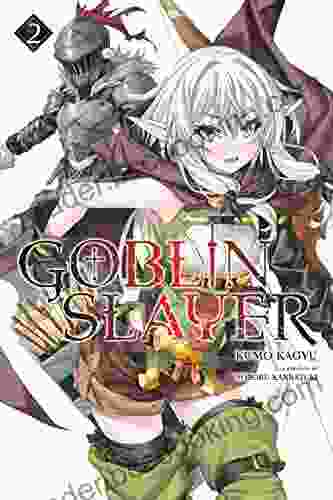How Five Great Commanders Saved Wars That Were Lost: From Ancient Greece to Iraq

In the annals of military history, there are countless tales of wars that were lost, battles that were fought in vain, and armies that were utterly defeated. But amidst the wreckage of these lost campaigns, there are also stories of extraordinary commanders who, against all odds, turned the tide of battle and snatched victory from the jaws of defeat.
4.6 out of 5
| Language | : | English |
| File size | : | 7617 KB |
| Text-to-Speech | : | Enabled |
| Screen Reader | : | Supported |
| Enhanced typesetting | : | Enabled |
| X-Ray | : | Enabled |
| Word Wise | : | Enabled |
| Print length | : | 321 pages |
| Lending | : | Enabled |
In his captivating new book, How Five Great Commanders Saved Wars That Were Lost, acclaimed historian Edward Ruggero delves into these extraordinary tales. He takes us back to the ancient battlefields of Greece, where Miltiades led the Athenians to victory against the invading Persians at the Battle of Marathon. We witness the strategic brilliance of Hannibal as he outmaneuvered the Romans in the Second Punic War, and the indomitable spirit of George Washington as he rallied his troops to victory in the American Revolutionary War.
Ruggero also examines the more recent conflicts in Iraq and Afghanistan, where General David Petraeus and General Stanley McChrystal employed innovative counterinsurgency tactics to turn the tide of war. These five commanders, from different eras and different parts of the world, shared a common trait: they were all masters of the art of war, and they all possessed the ability to inspire their troops to greatness.
Chapter 1: Miltiades and the Battle of Marathon
The Battle of Marathon was a pivotal moment in the history of Greece. In 490 BC, a massive Persian army invaded Greece, intent on conquering the city-state of Athens. The Athenians were outnumbered and outmatched, and their defeat seemed inevitable.
But Miltiades, the Athenian general, had a plan. He knew that the Persians were heavily armored and that they would be at a disadvantage on the rough terrain of Marathon. So he decided to attack the Persians before they could deploy their full force.
The Athenians charged into battle with a fury, and they quickly overwhelmed the Persian flanks. The Persians were routed, and the Athenians won a decisive victory. The Battle of Marathon was a turning point in the Greco-Persian Wars, and it marked the beginning of the end of the Persian Empire.
Chapter 2: Hannibal and the Second Punic War
Hannibal was one of the greatest military commanders in history. He was born in Carthage, a powerful city-state in North Africa. In 218 BC, Hannibal invaded Italy with a massive army, intent on conquering Rome.
The Romans were caught off guard by Hannibal's invasion, and they suffered a series of defeats. Hannibal was a brilliant tactician, and he used his superior cavalry to outmaneuver the Romans at every turn.
But the Romans were not about to give up. They rallied their forces and fought back against Hannibal. The war dragged on for years, and both sides suffered heavy losses. But in the end, the Romans prevailed.
Chapter 3: George Washington and the American Revolutionary War
George Washington was the first president of the United States, and he is also considered one of the greatest military commanders in American history. In 1775, the American colonies declared independence from Great Britain, and Washington was appointed commander of the Continental Army.
The Continental Army was outmatched by the British army in terms of training, experience, and equipment. But Washington was a skilled leader, and he was able to inspire his troops to fight for their independence.
The American Revolutionary War was a long and bloody conflict, but in the end, the Americans prevailed. Washington's leadership was a major factor in the American victory, and he is considered one of the most important figures in American history.
Chapter 4: General David Petraeus and the Iraq War
General David Petraeus is a retired U.S. Army general. He served as the commander of the Multi-National Force in Iraq from 2007 to 2008. When Petraeus took command, the Iraq War was in a state of chaos. The insurgency was gaining strength, and the Iraqi government was on the verge of collapse.
Petraeus implemented a new counterinsurgency strategy that focused on winning over the Iraqi people and isolating the insurgents. The strategy worked, and the violence in Iraq began to decline.
Petraeus's success in Iraq was due in part to his ability to adapt to the changing circumstances on the ground. He was also a master of public relations, and he was able to build support for the war both in the United States and in Iraq.
Chapter 5: General Stanley McChrystal and the War in Afghanistan
General Stanley McChrystal is a retired U.S. Army general. He served as the commander of the International Security Assistance Force in Afghanistan from 2009 to 2010. When McChrystal took command, the war in Afghanistan was in a state of stalemate. The Taliban was gaining strength, and the Afghan government was struggling to maintain control.
McChrystal implemented a new counterinsurgency strategy that focused on protecting the Afghan people and building up the Afghan government. The strategy worked, and the violence in Afghanistan began to decline.
McChrystal's success in Afghanistan was due in part to his ability to build relationships with the Afghan people and the Afghan government. He was also a master of counterinsurgency warfare, and he was able to adapt to the changing circumstances on the ground.
The five commanders profiled in this book are all masters of the art of war. They possessed the strategic brilliance, indomitable spirit, and ability to inspire their troops to greatness. They turned the tide of seemingly lost wars and played a pivotal role in shaping the course of history.
The stories of these five commanders are a testament to the power of human resilience and the importance of leadership. They are a reminder that even in the darkest of times, there is always hope. With courage, determination, and a willingness to adapt, we can overcome any obstacle and achieve our goals.
4.6 out of 5
| Language | : | English |
| File size | : | 7617 KB |
| Text-to-Speech | : | Enabled |
| Screen Reader | : | Supported |
| Enhanced typesetting | : | Enabled |
| X-Ray | : | Enabled |
| Word Wise | : | Enabled |
| Print length | : | 321 pages |
| Lending | : | Enabled |
Do you want to contribute by writing guest posts on this blog?
Please contact us and send us a resume of previous articles that you have written.
 Book
Book Novel
Novel Page
Page Chapter
Chapter Text
Text Story
Story Genre
Genre Reader
Reader Library
Library Paperback
Paperback E-book
E-book Magazine
Magazine Newspaper
Newspaper Paragraph
Paragraph Sentence
Sentence Bookmark
Bookmark Shelf
Shelf Glossary
Glossary Bibliography
Bibliography Foreword
Foreword Preface
Preface Synopsis
Synopsis Annotation
Annotation Footnote
Footnote Manuscript
Manuscript Scroll
Scroll Codex
Codex Tome
Tome Bestseller
Bestseller Classics
Classics Library card
Library card Narrative
Narrative Biography
Biography Autobiography
Autobiography Memoir
Memoir Reference
Reference Encyclopedia
Encyclopedia William Laird Mckinlay
William Laird Mckinlay Kishore Mahbubani
Kishore Mahbubani Sara Roahen
Sara Roahen Ron Malhotra
Ron Malhotra Sarah Damaske
Sarah Damaske Robert Greene
Robert Greene Robin Easton
Robin Easton Mindy Dwyer
Mindy Dwyer Thomas Zimmermann
Thomas Zimmermann Kris Timken
Kris Timken Kinshasha Holman Conwill
Kinshasha Holman Conwill Kuldeep Singh
Kuldeep Singh Paul Polak
Paul Polak Patricia Swann
Patricia Swann Maria Sibylla Merian
Maria Sibylla Merian Sarah Bernhardt
Sarah Bernhardt Nancy Keene
Nancy Keene Toni Weschler
Toni Weschler Louisa J Morgan
Louisa J Morgan S R Witt
S R Witt
Light bulbAdvertise smarter! Our strategic ad space ensures maximum exposure. Reserve your spot today!

 Israel BellMaster the DeFi Revolution: An Executive Guide to the World of Decentralized...
Israel BellMaster the DeFi Revolution: An Executive Guide to the World of Decentralized... Francisco CoxFollow ·14k
Francisco CoxFollow ·14k Greg FosterFollow ·19.6k
Greg FosterFollow ·19.6k Andres CarterFollow ·13.8k
Andres CarterFollow ·13.8k Robert HeinleinFollow ·2.8k
Robert HeinleinFollow ·2.8k Ken SimmonsFollow ·18.5k
Ken SimmonsFollow ·18.5k Bret MitchellFollow ·10.3k
Bret MitchellFollow ·10.3k Alex ReedFollow ·17.4k
Alex ReedFollow ·17.4k Clark CampbellFollow ·4.7k
Clark CampbellFollow ·4.7k

 Liam Ward
Liam WardUnleash the Power of Goblin Slayer: Discover the Gripping...
Enter the Shadowy Realm of...

 Eli Brooks
Eli BrooksWalking the Territory: Your Essential Companion for...
Adventure Awaits! Prepare to immerse yourself...

 Floyd Richardson
Floyd RichardsonGoblin Slayer: A Gripping Light Novel Series That Will...
Step into the shadowy...

 Dennis Hayes
Dennis HayesFrom Strategy to ROI: The Ultimate Guide to Driving...
In the dynamic and competitive business...

 Edward Reed
Edward ReedUnveiling the Rich Tapestry of Tennis in Britain: A...
: Tennis - A British Love Affair Tennis, a...

 Michael Crichton
Michael CrichtonEscape into the Thrilling World of "Here and Now" by...
In the tapestry...
4.6 out of 5
| Language | : | English |
| File size | : | 7617 KB |
| Text-to-Speech | : | Enabled |
| Screen Reader | : | Supported |
| Enhanced typesetting | : | Enabled |
| X-Ray | : | Enabled |
| Word Wise | : | Enabled |
| Print length | : | 321 pages |
| Lending | : | Enabled |










